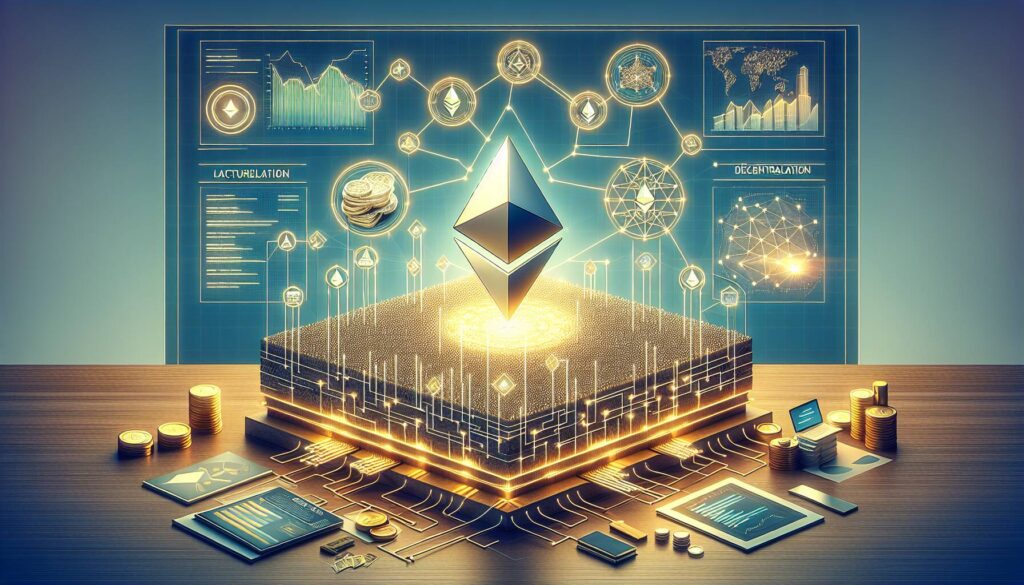The emergence of artificial intelligence and robotics is reshaping the landscape of work as we know it, prompting society to grapple with the imminent loss of millions of jobs across various sectors. From assembly lines to corporate offices, AI is rapidly mastering tasks that were once the domain of human labor, often outperforming us in speed and cost. This phenomenon isn’t a distant concern; it’s unfolding right now. With this transformative shift in mind, thought leaders and public figures are proposing innovative solutions, most notably Universal Basic Income (UBI), a concept endorsed for over a decade as a potential lifeline for those affected by these changes.
UBI advocates assert that a guaranteed monthly cash payment, without stipulations, could provide the financial stability necessary for individuals to thrive, even when work opportunities dwindle. Alternatives, including Universal Basic Capital, Universal Basic Ownership, and Universal Extreme Wealth, offer intriguing propositions that hint at shared prosperity in an increasingly automated future. Yet, many believe that UBI represents the most immediate solution, allowing individuals to navigate the economic fallout of automation without falling through the cracks of traditional welfare systems.
“If machines are doing most of the work and generating the wealth, we should cut people in directly to the money earned.”
Critics of UBI raise concerns regarding its feasibility, including the potential for inflation or a decline in work ethic. However, studies from various regions, such as Alaska’s oil dividend, suggest a more nuanced story—participants in UBI trials often pursue creativity and entrepreneurship rather than succumbing to lethargy. This model resonates with many as a crucial step toward ensuring that the benefits of AI-driven wealth are distributed broadly, rather than concentrated in the hands of a few corporate giants.
The concept of a superfund for Universal Basic Capital, which would allocate income-generating assets to individuals, offers a potential framework for long-term wealth generation. Similarly, Universal Basic Ownership could empower citizens by granting them stakes in the companies spearheading AI innovation. However, the practicality of these ideas remains under scrutiny as they introduce complexities that UBI elegantly avoids. Ultimately, while visions of universal ownership and extreme wealth captivate the imagination, the practicality and immediate benefits of UBI keep it at the forefront of discussions about a fairer economic future.
As society looks ahead to a world where machines take over an increasing share of labor, UBI emerges as a vital safety net, allowing individuals to secure their basic needs while considering future economic models. It is not merely a form of “free money,” but rather a necessary adaptation to a new reality where the connection between employment and human value must be reevaluated. By ensuring a direct flow of resources into the hands of the people, UBI stands as a beacon of hope—an essential foundation for building an equitable society amid the AI revolution.

The Impacts of AI on Employment and Universal Basic Income
Key points regarding the rise of artificial intelligence, the potential job losses, and proposed solutions:
- Job Displacement: AI is rapidly taking over roles in various sectors, including manufacturing, law, trucking, and finance.
- Universal Basic Income (UBI): A suggested solution where everyone receives a guaranteed monthly payment to cover basic needs.
- Alternatives to UBI:
- Universal Basic Capital: Providing income-generating assets to everyone.
- Universal Basic Ownership: Allowing public ownership in AI-driven companies.
- Universal Extreme Wealth: Envisioning a future with abundant resources and minimal costs.
- Trial Evidence: Successful real-world examples show that UBI does not deter work; recipients often engage in productive activities.
- Wealth Distribution: A need for wealth generated by AI to be spread across society to avoid social unrest.
- Liquidity and Simplicity: UBI is seen as an immediate solution providing cash for essentials without bureaucratic hurdles.
- Individual Freedom: Cash payments give people the choice to manage their finances according to their priorities.
- Future Adaptability: UBI can serve as a foundation while exploring other financial models and innovations.
- Human Worth Redefined: In an AI-driven world, the connection between employment and self-worth must shift.
If we implement UBI effectively, it may not only stabilize the economy but also ensure that the benefits of AI and automation are enjoyed by all, rather than a select few.
The Future of Work: Navigating the Impacts of AI with Universal Basic Income
The rapid advancement of artificial intelligence (AI) and robotics is reshaping the workforce landscape, leading to concerns about widespread job displacement. Various public figures are proposing innovative solutions, with Universal Basic Income (UBI) emerging as a frontrunner due to its straightforward approach of providing monthly cash payments to individuals. This strategy stands in contrast to alternatives that involve asset distribution or equity ownership, which possess both advantages and inherent challenges.
Competitive Advantages of UBI: UBI’s simplicity is its most compelling selling point – it requires minimal bureaucratic infrastructure to implement compared to alternatives like Universal Basic Capital or Universal Basic Ownership. Individuals immediately receive funds, enabling them to cover essential needs during turbulent economic times. By ensuring liquidity, UBI is particularly beneficial for those suddenly thrust into unemployment due to automation. Moreover, evidence from trials suggests that rather than fostering laziness, UBI can empower individuals to pursue education or entrepreneurship, potentially contributing positively to the economy.
Potential Disadvantages of Alternative Models: While concepts such as Universal Basic Capital, which could guarantee income-producing assets, and Universal Basic Ownership, aimed at equitable distribution of wealth from AI-driven industries, are appealing, they come with complexity and uncertainty. The reliance on market performance poses risks; economic downturns could leave individuals without adequate support. Additionally, convincing companies to cede significant equity might prove to be an uphill battle, undermining the viability of such models in real-world applications.
Beneficiaries and Challenges: UBI has the potential to benefit not only those displaced by technology but also society at large by maintaining economic stability. Workers at risk of job loss across industries like manufacturing, transportation, and finance stand to gain immediate financial relief, enabling them to adapt and explore new opportunities without the weight of survival pressing down. Conversely, robust opposition may arise from corporate sectors concerned about increased taxation to fund UBI, as well as trepidation over its perceived impact on labor participation rates.
In a world where automation is becoming the norm, addressing the societal implications of job loss is paramount. UBI offers a practical stopgap that could foster resilience while more complex solutions are explored. The debate is not merely about financial models but rather about ensuring that technological progress benefits each individual, preventing societal division as the workforce transforms into an era dominated by machines.















